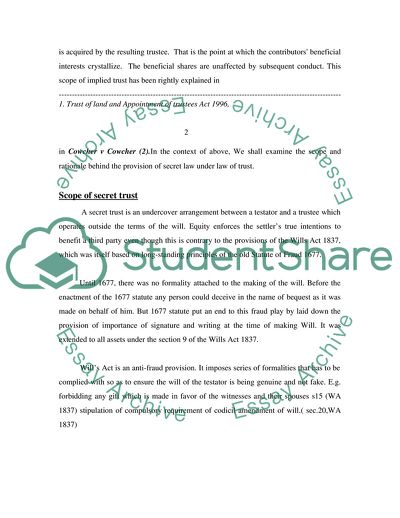Cite this document
(Secret Trust: Rationale Behind the Secret Trust Essay, n.d.)
Secret Trust: Rationale Behind the Secret Trust Essay. https://studentshare.org/law/1711594-what-does-an-examination-of-secret-trusts-and-attempts-to-find-a-rationale-for-their-existence-tell-us-about-trusts-law
Secret Trust: Rationale Behind the Secret Trust Essay. https://studentshare.org/law/1711594-what-does-an-examination-of-secret-trusts-and-attempts-to-find-a-rationale-for-their-existence-tell-us-about-trusts-law
(Secret Trust: Rationale Behind the Secret Trust Essay)
Secret Trust: Rationale Behind the Secret Trust Essay. https://studentshare.org/law/1711594-what-does-an-examination-of-secret-trusts-and-attempts-to-find-a-rationale-for-their-existence-tell-us-about-trusts-law.
Secret Trust: Rationale Behind the Secret Trust Essay. https://studentshare.org/law/1711594-what-does-an-examination-of-secret-trusts-and-attempts-to-find-a-rationale-for-their-existence-tell-us-about-trusts-law.
“Secret Trust: Rationale Behind the Secret Trust Essay”. https://studentshare.org/law/1711594-what-does-an-examination-of-secret-trusts-and-attempts-to-find-a-rationale-for-their-existence-tell-us-about-trusts-law.


